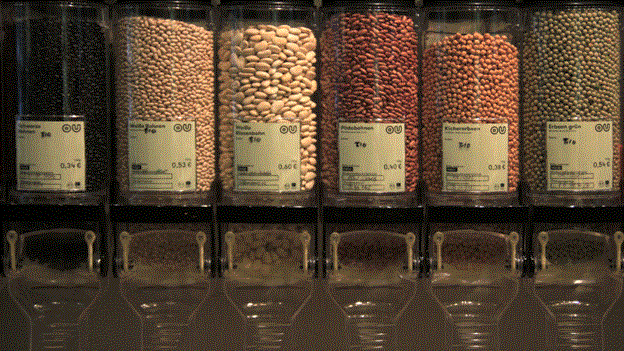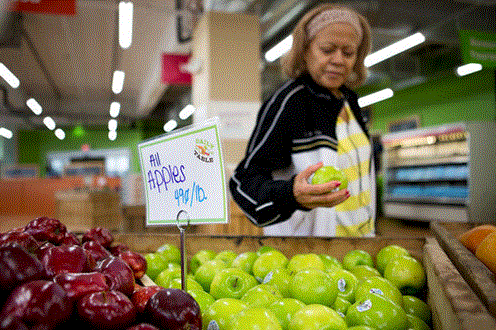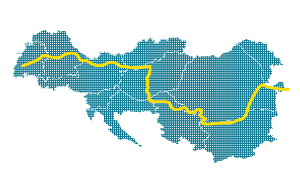Benefits of Unpacked Grocery Stores

Zero Waste Culture at the Grocery Store
Ubiquitous plastic is a real problem we face — it is polluting our planet, killing ecosystem, and contaminating our seas and oceans. The European Union pointed out that over 200 plastic bags are disposed annually after they are used once [1]. As a result, E.U advocated that the number of lightweight plastic bags should be reduced to 90 bags each year by an individual. This is a main reason why we have to make some radical solutions towards a zero waste economy system.
Due to the increasing level of plastic waste and trash at home, most supermarkets today are including a plastic-free section in their premises or even opening an entirely zero-waste store. In this new shopping concept, the cereals are packed in big glass containers that have handles at the bottom. The customers come with their own containers and fill them with the food up to their desired levels. Most of the items available in these unpacked stores are organic including rice, pasta, fruits, vegetables, and cooking oils. Some of the items usually come with packages, which are reusable after they are cleaned. The unpacked stores also cater for the customers who leave their bags or containers at home because they sell these packaging items, as well. The idea of selling original and unpackaged items at the supermarket is truly an innovation in how grocery stores operate and deal with plastic waste.

Figure 1: Cereals packed in big glass containers (Source: https://blog.drupa.com/wp-content/uploads/2014/10/140919_OU_19-1075x605.jpg)
Examples of Unpacked Stores
Many supermarkets throughout Europe are proud to offer an environmentally friendly alternative to its customers. Most of the shops that sell food items without packaging are usually found in local areas where people come with their wrapping materials to carry fish, meat, or bread. Examples of such stores include the Store Cupboard, which is located at the Crystal Palace Food Market, Hetu in Clapham Junction, and E5 Bakehouse in London Fields (Duckie, 2018), Ekoplaza in Amsterdam. In all these stores, you will find bulk dispensers filled with cereals and other food items. In Berlin, Germany, there is a new store called Original Unverpackt, where food shopping is done without packaging. The founders realized that there is so much packaging that comes with preparing a simple dinner, and they wanted to reduce it. The idea of having packaging-free sections in stores is not new because it has been spotted in Spain and Italy in the past. Plastic Free Challenge is becoming also more and more popular in Slovakia. At package-free shop U Dobrožrúta or U Vážky in Slovakia, you can bring your own containers so you avoid any plastic bags or waste. There’s nothing beautiful more than seeing someone make a small, but impactful, lifestyle change like adopting an ecological lifestyle with a friendly attitude towards our environment.

Figure 2: A woman picking fruits and vegetables in an unpacked store (Source: https://www.goodnet.org/photos/620x0/26991.jpg)
You can be part of the solution! It is all about habits.
One of the benefits of unpacked grocery stores is the reduced amount of trash at home for the customers. This means that the plastic waste that gets into their dust bins is limited. Other than creating a plastic-free environment, the new shopping concept allows customers to buy food in small quantities. This is made possible by the handles at the bottom of the dispensers, which allows the buyer to measure what he/she wants. Furthermore, when you’re going to an unpacked store, there is no need of buying a new packaging container or bag. You just need to carry the takeaway jars, containers, or containers you keep at home to collect your shopping. Unpacked stores are convenient to customers because they can be established in the local neighborhoods due to their small sizes.
People should go to unpacked grocery stores to save money, reduce food wastage, and minimize the plastic waste that chokes our oceans. If you’re interested in this new shopping pattern, you should download the Zero Waste app and join Facebook groups that teach people about plastic waste management. Examples of these groups include Journey to Zero Waste UK, Zero Waste Heroes, and Zero Waste Greater London (Duckie, 2018). When you find unpackaged stores or items in your area, add it to the Facebook groups. In this way, you will be informing other people about the available unpacked stores in your locality. People should also share posts about the new shopping experience to their social media accounts to reach more people. If you’re interested in going to an unpacked store, you should always carry your own bag when going to buy fruits and vegetables. You should also use containers for carrying unpackaged fish and meat. Lastly, you should explore the shops in your locality that have zero-waste offerings.
Reference
1. European Parliament. (2015). EU Restricts the Use of Plastic Bags to Protect the Environment.
2. Duckie, L. G. (2018). Food shopping unpacked.
Retrieved from https://www.sustainweb.org/jelliedeel/articles/food_shopping_unpacked/

